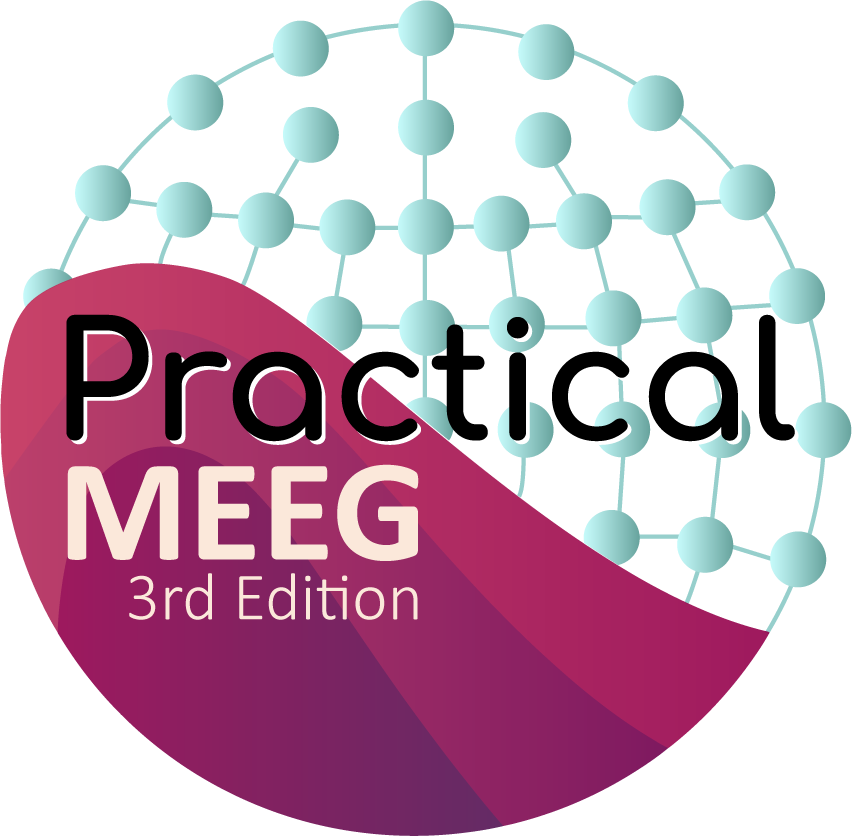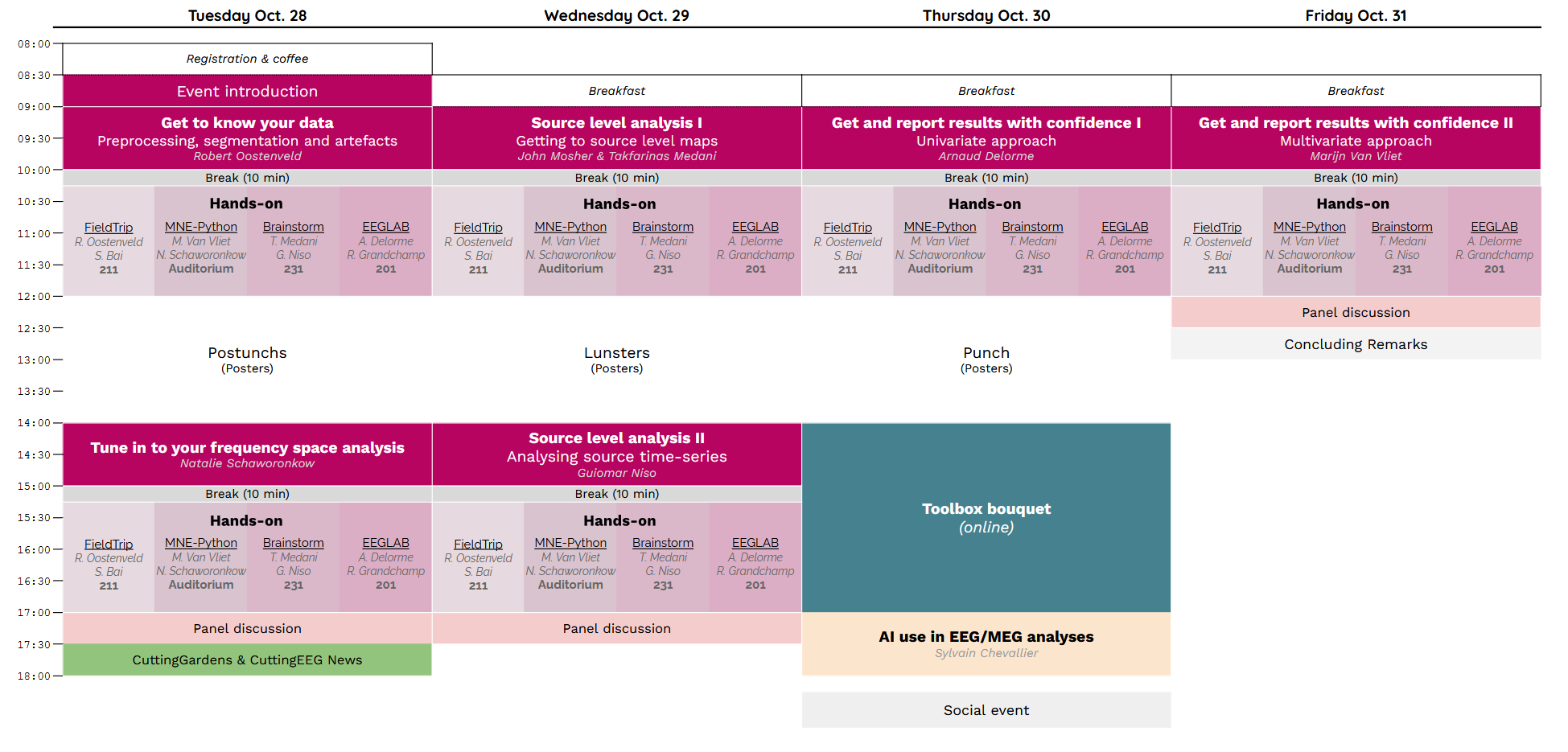Schedule & Registration
This page is for you if
- You want to learn how to analyse M/EEG signals with one of the main toolboxes (see on the right column).

- Are ready for 3.5 days deep dive into M/EEG data analysis, from basics to cutting-edge methods in the field!
And you can even get feedbacks on your work in a new kind of poster session.
Brainstorm
 Brainstorm is an open-source analysis software working under MATLAB. It was originally developed in the MEG-EEG center at the Pitié-Salpêtrière hospital in Paris by Sylvain Baillet. Brainstorm is nowadays developed across several sites in North America by a whole team of developers.
Brainstorm is an open-source analysis software working under MATLAB. It was originally developed in the MEG-EEG center at the Pitié-Salpêtrière hospital in Paris by Sylvain Baillet. Brainstorm is nowadays developed across several sites in North America by a whole team of developers.
Strengths: Brainstorm is a complete toolbox that requires no programming skills. Its stable and powerful graphical user interface allows a rapid “point and click” exploration of results. Historically developed for MEG data analysis, it is very well suited for this technology with several “safeguards” that prevent forgetting important steps in the analysis. The data organization is very well structured. Programmers will also enjoy its powerful API, and plugin environment.
Weaknesses: It is hard to think of any weakness for this amazing toolbox. Perhaps, its strict data organization implies constraints that are great for robustness, provenance tracking and reproducibility, but may limit flexibility for complex/unconventional designs.
Target users: All users will find an incredible environment with the most advanced and accessible visualization tools to interact with the data. Users without prior experience with MATLAB will find their way easily through Brainstorm.
Native BIDS support via import function
FieldTrip
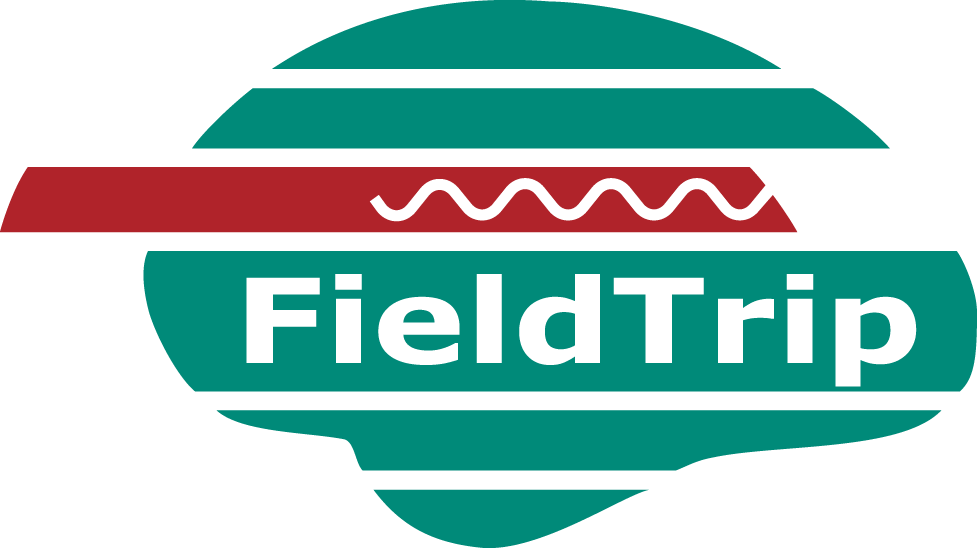 Fieldtrip is an open-source analysis software working under MATLAB. It is developed by Robert Oostenveld and coworkers at the Donders Institute for Brain and Cognition in Nijmegen.
Fieldtrip is an open-source analysis software working under MATLAB. It is developed by Robert Oostenveld and coworkers at the Donders Institute for Brain and Cognition in Nijmegen.
Strengths: FieldTrip is a complete toolbox with a concise data structure and a command line user interface, allowing maximal flexibility. Historically developed for time-frequency analysis, it remains a leader in this domain. It also has a real-time interface for brain computer interface.
Weaknesses: The command line interface is a no-go for users who are not ready to learn at least rudiments of programming. Rapid data exploration requires a good mastery of the software.
Target users: Users with prior experience (and appetite) using MATLAB will enjoy this tool.
BIDS support via external bids-matlab library
MNE-Python
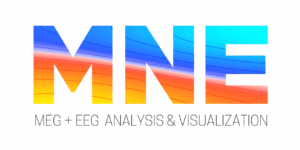 MNE-python is an open-source analysis software working in Python. It was initiated by Alexandre Gramfort and is nowadays developed by an important community.
MNE-python is an open-source analysis software working in Python. It was initiated by Alexandre Gramfort and is nowadays developed by an important community.
Strengths: MNE-Python is a complete toolbox with strong bonds to machine learning via its interface with scikit-learn. A historical connection to the MNE source estimation tools and Freesurfer (MRI segmentation) make it easy to interface with these tools.
Weaknesses: The only limits are your imagination, and your ability to write python code.
Target users: Users with prior programming experience will be most at ease with MNE-python. A good occasion to learn the Python language.
BIDS support via external mne-bids library
EEGLAB
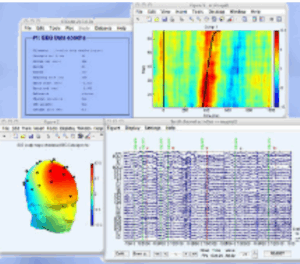 EEGLAB is an open-source analysis software working under MATLAB. It was created, and is currently maintained by Arnaud Delorme.
EEGLAB is an open-source analysis software working under MATLAB. It was created, and is currently maintained by Arnaud Delorme.
Strengths: EEGLAB is a popular toolbox for EEG analysis used in dozens of labs worldwide. It pioneered the use of Independent Component Analysis (ICA) for EEG analysis, and is currently the only toolbox offering multi-subject analysis of ICA components. It is also tightly integrated with a cloud-computing solution with the Neuroscience Gateway (NSG) portal. Its large plugin library opens lots of possibilities for any type of EEG data analysis.
Weaknesses: As its name indicates, EEGLAB works well with EEG, but its support for MEG is limited.
Target users: Naive users with or without prior programming experience in MATLAB will enjoy working with EEGLAB, using its Graphical User Interface, or scripting from the command line.
BIDS support via the EEG-BIDS plugin.
Application
Deadline: ASAP
Instructions
📅 Dates: October 28-31
1) Please read the form thoroughly and fill it out carefully, as it will not be possible to edit it once it has been submitted.
2) Once the form is completed and submitted your spot will be pre-booked.
3) To finalize your registration pay the fee via the link sent in the confirmation email (credit card only).
💰 Registration Fee: 450€
Includes event’s attendance, 4 breakfasts, 3 lunches, 1 social event, CuttingEEG 2025 membership
Sustainability Commitment
 Since 2019, we propose several strategies to reduce the ecological impact of our events, including vegetarian and plastic free catering or incitating our participants to favor train over plane transport to come to the confernence.
Since 2019, we propose several strategies to reduce the ecological impact of our events, including vegetarian and plastic free catering or incitating our participants to favor train over plane transport to come to the confernence.
Check the dedicated webpage for Green Travel Grants details.
